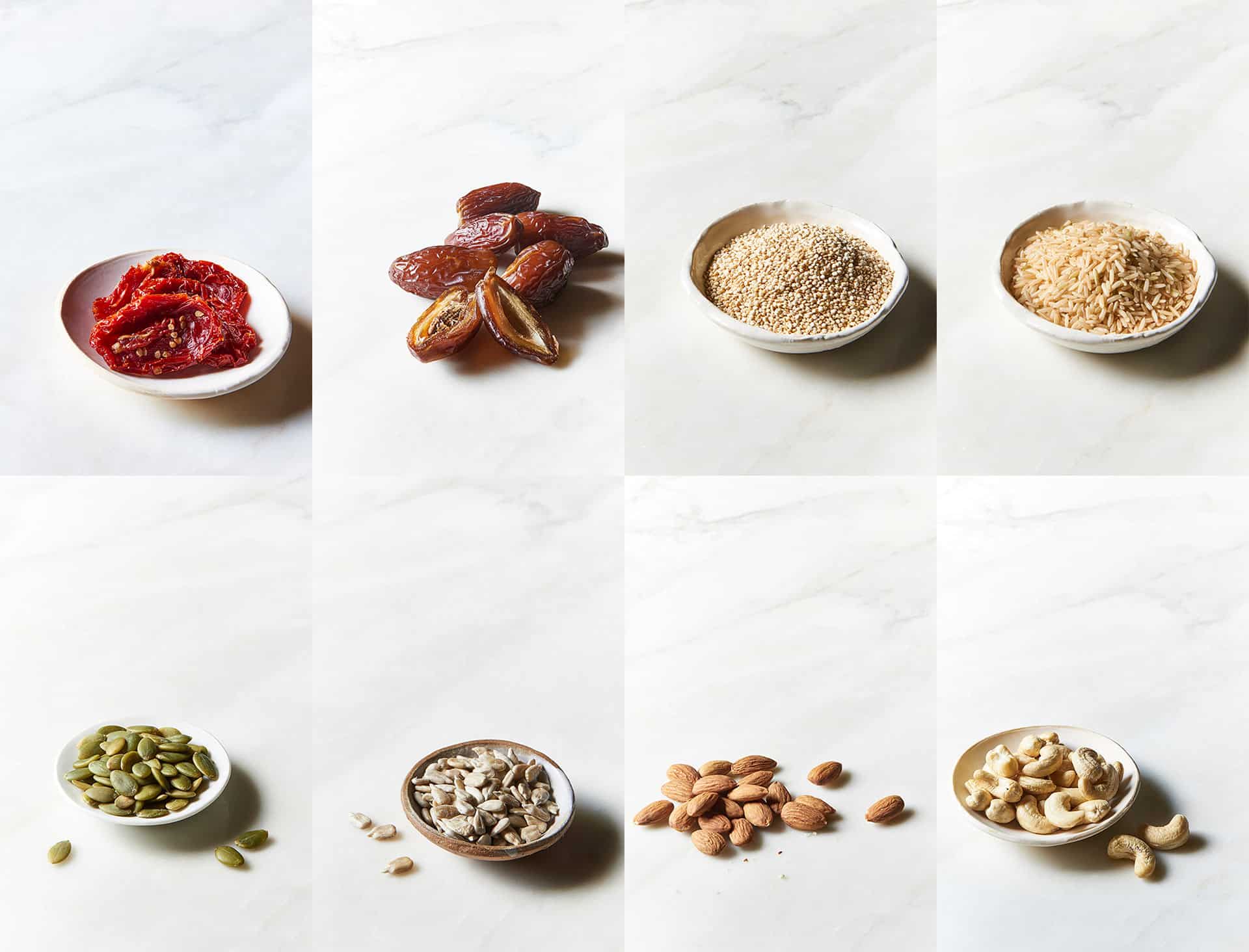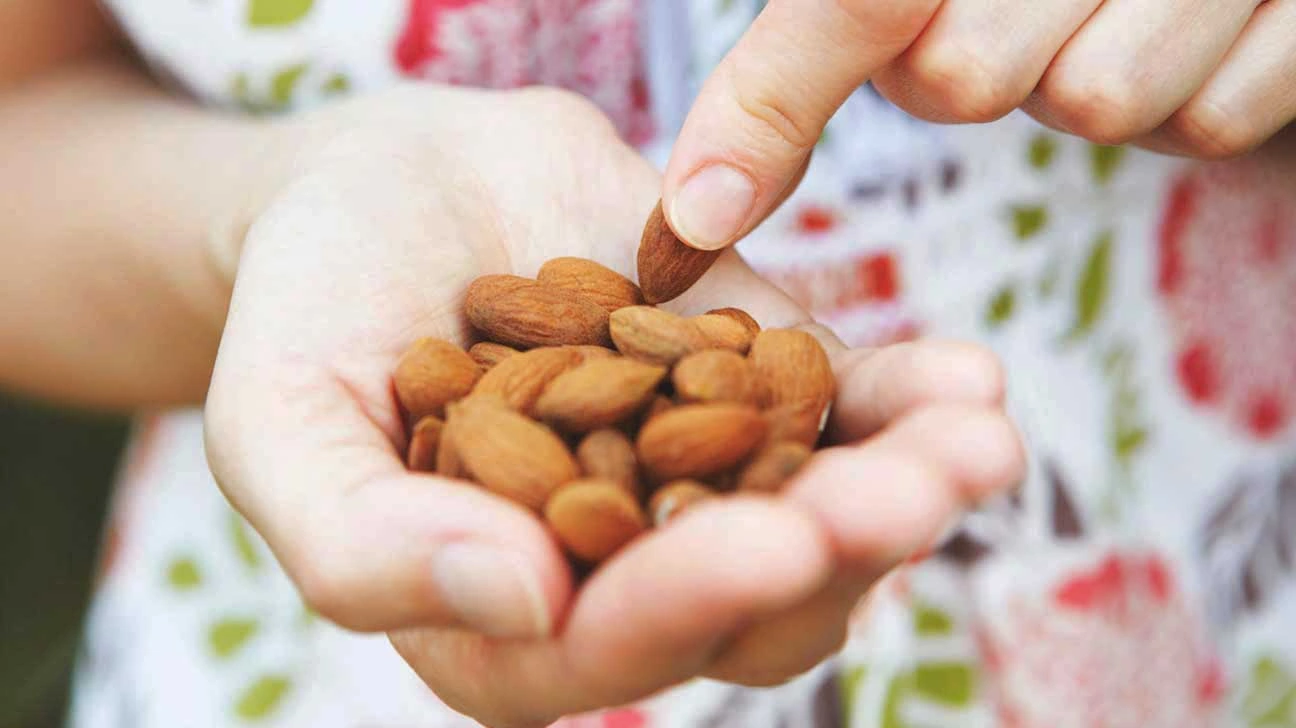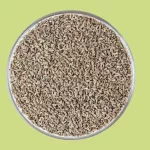
Late-Night Nutty Confessions
At first, I thought it was nothing. You know the drill—a long day, finally collapsing into bed, craving a little something. You reach for a handful of almonds (trying so hard to be healthy). You think, “Just a light crunch, nothing heavy. There’s magnesium in these, right? Sleep superfood.”
Flash forward: You’re curled up, lights down, blanket snuggled… and your stomach’s throwing a party. Gurgling, bloating, maybe even a twisty, uncomfortable feeling—kind of like your gut is texting you “let’s talk…”
If you’ve asked yourself, are nuts hard to digest at night?—oh, friend, let’s dive in. Pull up a seat, because this is more common than you’d think, and the science is actually a little fascinating (and a bit messy, just like a real life midnight snack).
What’s Actually In Nuts?
Okay, quick nerdy moment—promise it’ll make sense. Nuts pack in loads: healthy fats, protein, fiber, plus sleep helpers like magnesium and melatonin. That’s the good stuff… but it’s also why they’re tricky. Fats and fibers? There’s your “heavy” feeling. (And yes, your digestive system tries to slow down with the rest of you at night—rude, right?)
So—why do people reach for them before bed if there’s even a small chance of regret? It’s because, truly, walnuts and almonds especially come loaded with natural melatonin and magnesium—two top players when it comes to relaxing the nervous system and nudging you toward dreamland. Research on daily walnut habits even shows eating a serving before sleep can boost urinary melatonin and improve overall sleep quality (study details)—but that’s if your belly’s on board with the plan.
Still with me? Let’s turn up the curiosity…
Why Your Nighttime Digestion Is (Sometimes) a Disaster
Have you ever noticed how a midnight snack feels totally different from a lunchtime one? There’s a reason—and it’s not just bad luck!
Here’s the deal: when night hits, everything slows down. Your metabolism chills out. Your body basically says, “I’m done, let’s do this tomorrow.” So, if you throw in foods that demand a little extra work—like nuts, which are famous for their healthy-but-stubborn fats and fiber—your digestive system grumbles.
According to digestive health research, are nuts hard to digest at night? For some people: yes, especially if you have existing gut sensitivities, or if you snack big and late. The main culprits? High fat content and certain natural compounds in raw nuts—phytates and tannins—are tough for your system to break down quickly. That can lead to bloating and gas (sometimes even the next morning—so not the souvenir we want).
You vs. Your Gut’s “Night Shift”
Imagine your digestive tract as a night owl who’d rather binge Netflix than work overtime. Toss in a nutrient-dense snack at 10PM and… you might just be rewinding scenes (or replaying tummy rumbles) at 2AM.
Personal moment: My friend Anna swore by walnuts for sleep. She’d pop a generous handful at 11PM, convinced she’d sleep like a baby—and almost always wound up tossing and turning, pressing a pillow to her stomach. The lesson? Sometimes your gut just has boundaries. (We can respect that, even if our cravings can’t.)
Pros, Cons, and Late-Night Nutty Truths
Let’s get practical! When it comes to “bad at night, good in the day,” it’s not black and white—more like a sliding scale. Here’s a quick way to see where different nuts land (and why they might trip you up when the sun goes down):
| Nut Type | Fat per oz | Fiber per oz | Nighttime Digestibility Tip |
|---|---|---|---|
| Almonds | 14g | 3.5g | Soak or buy pre-sprouted for smoother digestion |
| Walnuts | 18g | 2g | Stick to one small handful, ideally before 9PM |
| Peanuts | 14g | 2.4g | Avoid flavored—sugary ones can cause extra bloat |
Big takeaway? More fat, more fiber, and later in the evening equals harder work for your resting gut.
But… Don’t Nuts Help You Sleep?
Such a paradox, right? Here’s where things get interesting. There’s no denying nuts can be helpful for sleep—if your digesting self is up for it. Magnesium, tryptophan, even a touch of plant-based melatonin: almonds, pistachios and walnuts are loaded (more about magnesium and sleep here).
Recent studies—like one where young adults ate walnuts every night for eight weeks—show real improvements in sleep latency (how fast you fall asleep), plus better overall sleep quality and less daytime grogginess. But (isn’t there always a “but”?), it all depends on your portion size and timing (see the trial details).
And that’s only if you’re not going overboard—because that’s where digestion gets feisty, not dreamy.
Are Nuts Hard to Digest at Night… Or Are We Overthinking This?
I can’t tell you how many times I’ve overanalyzed a midnight snack choice. But here’s the real talk: a small, reasonable handful of nuts a couple hours before bed will probably be fine for most people. (Trust me, your body will let you know if it’s not.)
It’s the big bowls and late-night “oops, I finished the bag” moments that ruin the vibe—fiber and fat ganging up to keep your belly working overtime. Other troublemakers? Eating raw nuts, which have more of those tricky compounds that can upset your stomach. Roasted or soaked nuts can be easier on you (the soaking helps break down natural barriers so your body can actually unlock more nutrients too—old-school wisdom for the win).
Of course, if you have things like IBS or other digestive quirks, you might need to experiment more carefully.
How Does It Stack Up With Other Snacks?
Nuts aren’t alone in the “maybe not right before bed” club. Compare them to, say, a slice of toast or a small bowl of yogurt—those are lighter, process quicker, and tend to give your gut less work when you’re supposed to be winding down. But… those snacks don’t have the melatonin boost, so there’s always a trade-off.
Real-Life “Oops, Too Many Nuts” Stories
This is the part where I get honest. For a whole week, I decided to really track snacks vs. sleep. One night, I had six cashews and a few dried cherries (slept like a log). Next night? I doubled down—two full handfuls of mixed nuts at 10:30PM. Tossed, turned, and by 2AM was bargaining with my stomach: “Please, just settle down.”
The difference wasn’t subtle. So, if you’ve ever wondered if you’re the only one with nut-induced night restlessness—nope, welcome to the club! (We should get badges.)
Should You Worry About Weight, Too?
Let’s get honest—late-night snacks have a reputation, and not always a good one. People whisper: “Does eating nuts before bed make you gain weight?” Good news: one small portion won’t tip the scales. Nuts are calorie-dense, yes, but also super filling, so you’re less likely to overeat other stuff later. The trouble is more about the habit than the occasional night snack.
Curious more about the weight angle? Check out Does eating nuts before bed make you gain weight for a deep-dive into the calorie math, or if you’re hoping to make nuts your healthy secret weapon, Eating nuts before bed weight loss for strategies that won’t sabotage progress.
Snack Smarts: How to Make Nuts “Night-Friendly”
So, here’s the game plan. Want to keep your bedtime snack nutty—and happy? Try these:
- Soak your nuts. Seriously, 6-8 hours in water (or buy pre-soaked/activated). It sounds fussy but breaks down the tough stuff and helps your gut out. Think of it as a little spa day for your almonds.
- Stick to a small serving—like 1 ounce (that’s a shot glass full, not a movie snack bowl). This makes are nuts hard to digest at night way less likely to haunt you.
- Go for roasted or lightly salted if raw nuts feel rough. Just check for added oils or flavors that could irritate your belly (peanut butter lovers, check labels!).
- Pair with “easy” snacks—like a few berries or some Greek yogurt if you need a little more volume to feel satisfied.
- Eat at least an hour or two before bed. That gives your body a chance to get the hard work done before you’re counting sheep.

What If You’re Still Unsure?
If your gut always complains or you just want safer sleep snacks, swap in some tart cherries or low-sugar yogurt. Both can help with sleep (thanks, melatonin) without the heavier load on your system. Experiment. There’s no universal bedtime rulebook—your body’s the real expert.
For some extra reassurance, check out more snack ideas and healthy bedtime swaps at Eating nuts before bed weight loss. It’s all about options and feeling your best!
Gut Check: When to Get Professional Advice
Okay, real talk again: a little bloat isn’t usually a big deal, but if nuts always spell digestive doom, it could be more than just bad timing. Allergies, intolerances, or underlying gut issues do exist—and it’s worth chatting with your doctor or nutritionist if you have persistent problems. (Seriously. Better safe than sorry, right?)
If you’re healthy but just sensitive, trial-and-error is your new best friend. Jot down what foods you ate and how you slept—patterns will pop up, and you’ll get to know your quirks.
Tying It Together: Your Happiest, Healthiest Sleep Snacking
So… are nuts hard to digest at night? Sometimes, yes, especially if you eat too many, too late, or your gut’s having a moody moment. But nuts can be a part of a healthy bedtime routine—just with a little strategy: modest portions, ideally soaked or roasted, eaten earlier rather than right before bed.
There’s honestly no shame in experimenting. Want to make your snacks part of your wellness plan, not a sleepy-time sabotage? Start tonight—open your journal (or phone Notes!), write down your snack, the time, and how your stomach and sleep feel. Adjust. Repeat. You’ve got this.
And if you’re still curious about the weight loss angle—or trying to get the most sleep benefits without extra calories—give Does eating nuts before bed make you gain weight and Eating nuts before bed weight loss a peek. The more you know, the better you’ll feel about your choices—both in your belly and in your sleep.
You deserve good rest and happy snacks. Sleep well, snack happy, and remember: your gut (and cravings) might not always agree, but with a little attention, you can have your nuts and eat them too—without the midnight regret. Sweet dreams!


















Leave a Reply
You must be logged in to post a comment.